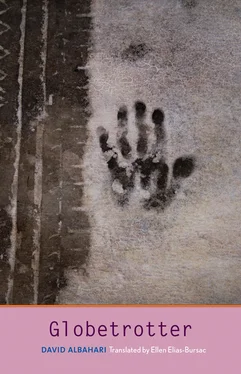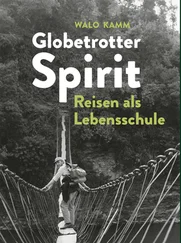Ivan Matulić’s grandson coughed, cleared his throat, and said they had just been commenting on how every mountain peak is always a summit and how there is not a great difference between being on top of Mount Everest and being on top of Tunnel Mountain. On Everest, he said, you stand above everything, of course, while here, he said, gesturing in a circle, you are beneath everything, because all the surrounding mountains reach higher altitudes, but what matters is the feeling, not the altitude, which is admittedly, he said, a big difference. My gaze followed his finger, pointing to the surrounding mountains, Sulphur and Rundle and the others, but I didn’t believe him. Once a person starts doubting, it is easier to doubt than to believe. Daniel Atijas would understand that, though he might not agree, though this no longer interested me. Just in case, I asked them what they had been talking about. They exchanged glances like boys caught out in a lie and said they had been sitting there in silence. They had been waiting, said Daniel Atijas, for me to wake up, because they thought it would be nice for us to have lunch together, but when they saw me still sleeping, they moved away, sat in the shade, took out their sandwiches and juices, he having taken his from my backpack, and started to eat. I had to shove my hands into my pockets so that I wouldn’t start waving my arms and shouting, I was so upset by the lie. It’s a good thing, I thought, that we aren’t on one of those peaks, because now I would definitely die of a lack of oxygen. Ivan Matulić’s grandson also shoved his hands into his pockets, though his gesture couldn’t have had anything to do with my anger. Coincidences like this happen, whether or not a person believes in chance.
Daniel Atijas and I had already talked about that once, I couldn’t remember when, but at the moment the conversation seemed so long ago that it ceased existing altogether. While I watched Daniel Atijas and Ivan Matulić’s grandson exchanging surreptitious glances, I thought how incredible it was, the ease with which events that were so promising at first, especially those which simultaneously offer undreamed-of ramifications, turn into something that is the opposite, which is most often accompanied by a feeling of betrayal, loss, and — why not? — submission to tragedy. The only consolation in all this is that without it there would be no art, certainly no literature, which, one can freely say, is nourished precisely by such betrayed expectations. In this, I thought, lies the advantage of literature over painting, for what literature can merely suggest by playing with presentiments, painting must articulate fully, except when the painting is based on a myth or historical fact and the observer can take into consideration whatever is left unsaid or undepicted. I assumed that these thoughts were coming to me because I happened to be on a mountaintop, albeit a low-altitude peak, and I felt a pang of sorrow that I couldn’t share them with Daniel Atijas, for whom they were intended. Perhaps I could, I thought, take him a little farther from this spot; perhaps I could come up with an excuse which would justify our stepping away from Ivan Matulić’s grandson, and then, keeping an eye out the whole time for the grandson and his possible approach, I could repeat it all and, finally, ask the question for which, after all these years, I had yet to come up with an answer: is the edge of the canvas — the perimeter of the picture, its frame — the place where the picture ends or where it begins? Now I wonder why I hadn’t thought to ask him that before.
It is true that the days we spent together in Banff were crammed with activities, and that sometimes things happened with terrible speed, but there were periods of quiet ease, of a candor that enticed one to engage in just that sort of conversation. Perhaps now I am thinking this way because a person’s departure, his absence, prompts examination of his presence, brings up insights about what was missed and regrets that some words were not said instead of others and that some things happened at all. We live, it occurs to me, only so we can constantly rebuke ourselves for what we cannot change. The more a thing cannot be changed, one could say, the more we regret not changing it at a time when change was possible, even though nothing at the time showed us we should. In a certain sense, we expect of life that it changes in and of itself, more or less like the seasons, and therefore most people reach the end of their journey without realizing that they themselves were the real masters of their fate. That thought has always filled me with disgust, the readiness of people to follow the mob, to follow anyone but themselves, and there may be no better place to see this than here in western Canada, where everyone is full of talk about individuality while longing, at the same time, for a political program that will, under the guise of slogans about respect for individual differences, bring them all to uniformity. Perhaps I should have said that out loud, for, who knows, Ivan Matulić’s grandson might have recognized himself. Just then he began collecting the crumpled napkins, plastic bags, and water bottles and attempting to organize them in his backpack.
So while Ivan Matulić’s grandson was tightening the straps, while Daniel Atijas was picking up pebbles and throwing them at a nearby tree, while I was imagining unimaginable things, a black cloud suddenly appeared in the sky. It is really not clear to me where it came from: I looked up and there it was in the sky, directly overhead. It may be that on the plains I was used to storms rising slowly along the line of the horizon, to the upward thrust of a mass of dark clouds until the entire sky was covered, so the speed with which the changes unfolded here caught me by surprise. I looked down at the ground, still hunting for trash, and when I looked up again, the clouds in the sky were roiling as in a cauldron. I assumed they must have come along the same route as the first cloud, but there was no time for guesswork. Several hikers walked by us, moving quickly toward the trail that led downhill. We needed to go with them, I said, but for whatever reason Daniel Atijas and Ivan Matulić’s grandson held back. Just as the rain was beginning, it occurred to me that maybe they wanted me to be the first to set off, to leave them behind, which, of course, was the last thing on my mind, so then I began to find reasons to slow down — tying my shoelaces, pretending I had caught sight of an intriguing pebble. The rain pelted harder and the wind picked up, so we were quickly soaked to the skin. I don’t know about the others, but my teeth were chattering and my every muscle was shivering so that I could barely walk. We were still on the ridge, only halfway to the meandering trail through the conifer wood where the trees would offer at least some protection, and I suddenly thought we would never get there.
The gusts of wind picked up. They lifted the raindrops and flung them in our faces, reducing visibility and darkening the already-shriveling light. Head bent, moving only a step at a time, I saw rivulets of rain slithering through the grass, the low undergrowth, and the rocks. Daniel Atijas was walking a little faster than Ivan Matulić’s grandson and me, and he was about thirty feet ahead of us, perhaps, I thought, because he had no backpack. A silly thought, of course, because there was nothing heavy in either of our packs, and buffeted by the gusts, they were swinging freely on our backs. The capacity for one’s preoccupation with petty spite is astonishing, even at moments of enormous strain or excitement — preoccupation with the little loathings that have no role other than to poison the soul and erode morale, especially when they remain unspoken. I leaned over even more, as if I could shrink in size or turn into a snail and creep into my shell, and bent over like that, my eyes almost closed, I turned to Ivan Matulić’s grandson. I meant to tell him to speed up, that we should catch up with Daniel Atijas and that all of us together, as we had come up, should head down along the trail leading to Saint Julian Road, and it took me several seconds to notice, with my eyes blinded by the wind and rain, that Ivan Matulić’s grandson was no longer next to me, to my right, where he had been. I stopped, turned to look the other way, and saw him there. He wasn’t nearby but had somehow veered off diagonally with his arms up over his face. To this day I can’t be sure whether he left the trail because of his crisscrossed arms — they must have reduced his already-limited field of vision — or, as I am sometimes inclined to believe, he left the trail and then, when he had gotten far enough off, raised his arms to hide the truth from us and, perhaps, himself.
Читать дальше







![David Jagusson - Fesselspiele mit Meister David [Hardcore BDSM]](/books/486693/david-jagusson-fesselspiele-mit-meister-david-har-thumb.webp)




